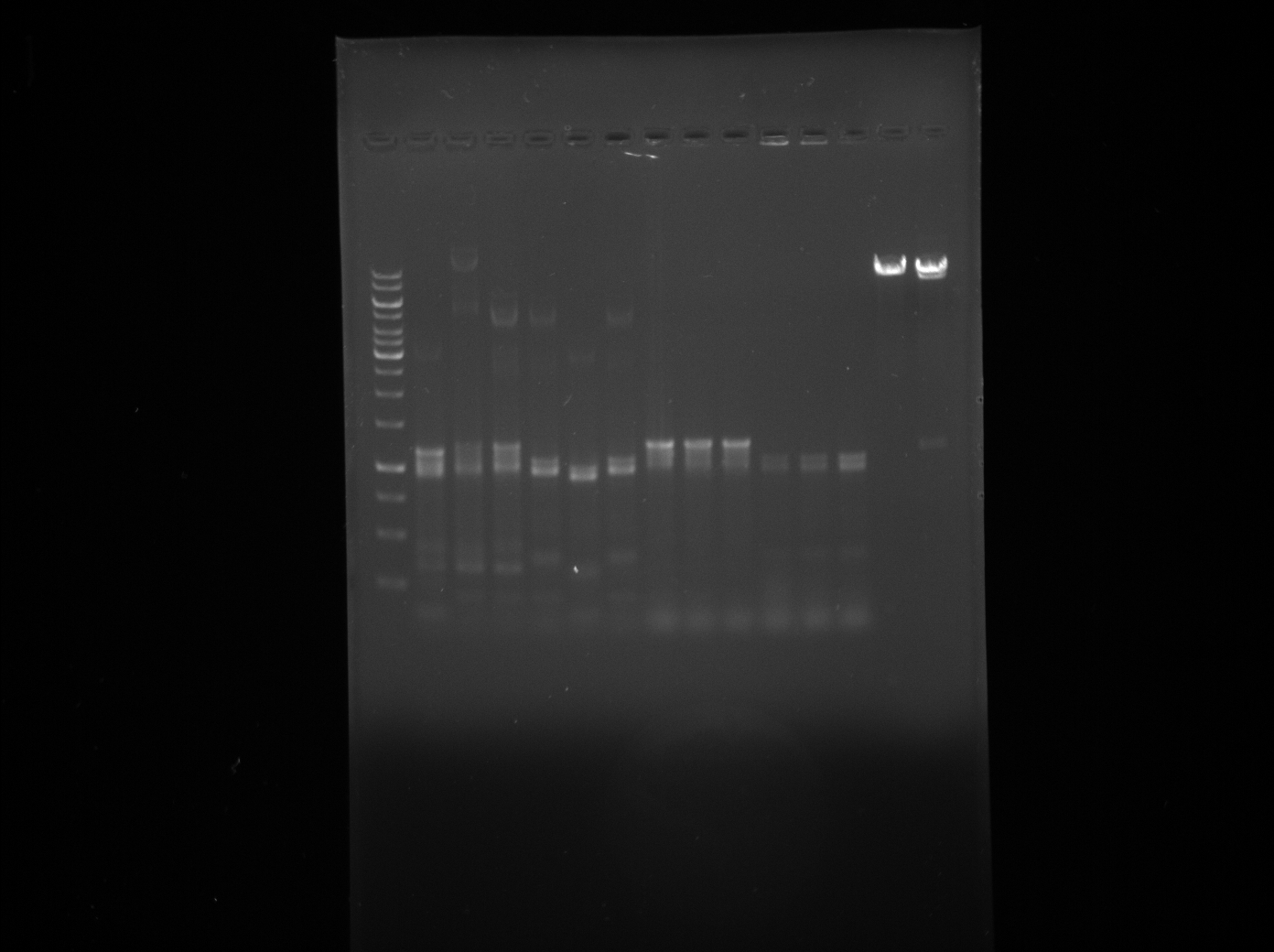Team:Newcastle/18 June 2010
From 2010.igem.org

| |||||||||||||
| |||||||||||||
18 June 2010
Polymerase Chain Reaction
Protocol
Polymerase Chain Reaction (PCR) is a technique used to amplify a single or few a copies of a piece of DNA generating thousands to millions of copies of a particular DNA sequence.
- To avoid contamination, wear gloves
- To achieve optimum results, always do everything on ice
A basic PCR set up requires several components and reagents.These components include:
- DNA template that contains the DNA region (target) to be amplified.
- Two primers that are complementary to the 3' (three prime) ends of each of the sense and anti-sense strand of the DNA target.
- Taq polymerase or another DNA polymerase with a temperature optimum at around 70 °C.
- Deoxynucleoside triphosphates, the building blocks from which the DNA polymerases synthesizes a new DNA strand.
- Buffer solution, providing a suitable chemical environment for optimum activity and stability of the DNA polymerase.
 
|
 "
"
